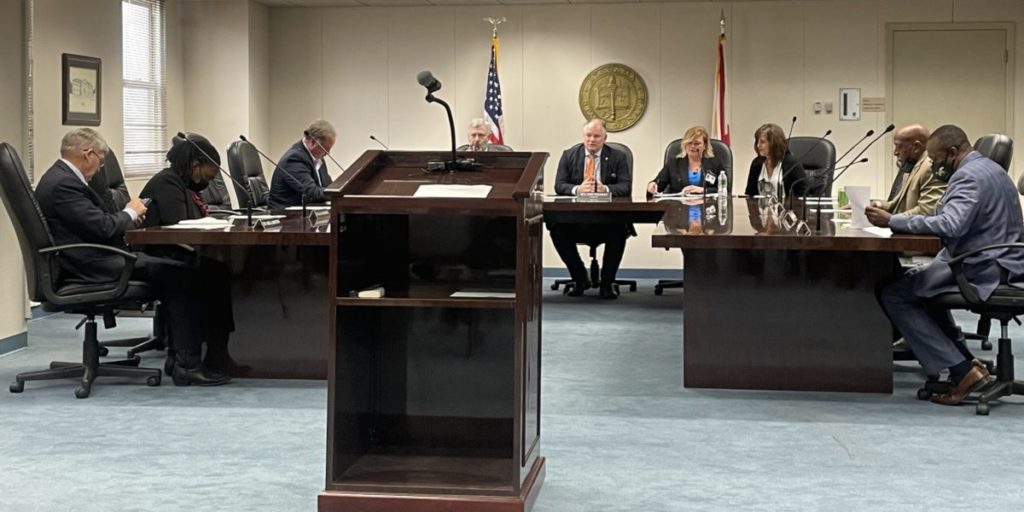
The Heritage Foundation, a conservative think-tank based out of Washington, D.C., is taking a closer look at the positive effects of criminal justice reform in Alabama. This week, their news website, The Daily Signal, spotlighted the use of community corrections programs.
The Alabama Legislature passed sweeping prison reform with only 5 dissenting votes during this year’s Regular Session, culminating several years of work by a broad coalition seeking to ease overcrowding in the system while maintaining public safety.
The bill is expected to shrink the prison system’s population by 4,500 inmates over the next 5 years. It also reduces the penalties for some nonviolent and drug-related crimes and strengthens the state’s parole program in an effort to reduce recidivism.
Under the new plan, convicted felons would have expanded opportunities to serve their sentences in their home communities rather than prison.
In a community corrections program, adopted and run at the county level, the offender must attend counseling and treatment programs at a facility during the day. In most cases, he or she has the freedom to go home at night.
Though they get to live at home during their time in the program, everyone sent to community corrections is still considered an inmate. If they skip required classes and meetings, they can be punished.
When only made available to nonviolent offenders, advocates of criminal justice reform say that community-based treatment provides a more effective outlet to rehabilitate people and keeps them from returning to a life of crime.
Many of these offenders have a drug or mental health issues that prison could exacerbate since it is a place where solid role-models are lacking.
Prison is essentially LinkedIn for criminals. Non-violent offenders go in to an environment surrounded by negative influences and those who have committed hard crimes. In The Daily Signal piece, Bennet Wright, director of Alabama’s Sentencing Commission, put it this way:
“The idea is that prison and community-based treatment are two wildly different environments. Just think about it. If you are surrounded by hardened criminals, you are basically doing social networking. That’s how we did criminal justice for a long time: ‘I am going to send you to prison to make you better.’ There’s definitely certain people that need to go. But if someone really is in need of programs and treatments, prison is not the ideal setting for them to get that.”
Under the new state law, assuming it is fully funded in the Special Session, there will be a new class of felonies for the least serious nonviolent crimes. These offenders will rarely see prison time. Instead, judges, who know the costs of prison more than anyone, would have greater discretion to sentence them directly to community corrections.
Research shows that offenders are more likely to commit new crimes within the first year of release from incarceration. Despite this fact, about one-third of those who left Alabama prisons in 2013 had no supervision as a safeguard against recidivism.
Half of all Alabama offenders complete their sentence in prison and then are released without supervision. Those very offenders are the most likely to return to the activities that got them in to prison initially.
The new law aims to break the cycle by mandating that all those released from prison be supervised in some form and that most offenders serve the back end of their sentences in community corrections.
While the reform bill expands access to community-based programs, several counties in the state have been running them for years. Jefferson County, home of the state’s largest city, Birmingham, has a system considered to be the model in the state.
In 2013-14, of those who came to Jefferson County from prison through the re-entry program, 80 percent successfully completed their treatment plan. 90 percent remained off drugs and alcohol after six months, and 69 percent were employed or attending school in that same period.
Currently, community corrections programs exist in only 45 of Alabama’s 67 counties, so it’s not a sentencing option available everywhere in the state—especially in poorer, rural counties.
The lack of sentencing flexibility has caused several problems for the Yellowhammer State including a rising prison budget, overcrowding, and a threat of a federal takeover.
1 in every 148 Alabamians is incarcerated in some manner. As of July 2010, only 43 percent of Alabama’s prisoners were serving time for violent crimes. The cost of housing inmates in prisons has risen 95 percent over the last two decades. As of 2008, the state was spending $15,178 per inmate each year. That’s $41.47 for each inmate every single day funded directly by state taxpayers.
The Daily Signal’s News Editor and author of the piece, Josh Siegel believes that the reforms could have a positive effect for both ex-felons and taxpayers.
In an interview with Yellowhammer News, Siegel said that criminal justice reform is a conservative issue from a costs and rehabilitation perspective. A major tenant of conservatism is reducing the price of government, and one of its main drivers at the state level has been the rising cost of prisons. Solutions that keep non-violent offenders out of prison and away from crime long-term creates benefits for everyone, he argues.
When asked about why he chose Alabama, Siegel said it was because he “saw that a lot of deep south states, Alabama in particular, have really become leaders on this issue.”
South Carolina, another pioneer in the field, is further along in the reform process than Alabama, and Siegel believed that the state would more effectively illustrate the benefits of system transition. “Here’s Alabama, that hasn’t implemented anything yet, but we wanted to see what’s providing impetus for this and provide details on how people are trying to fix the problems,” he said.
Siegel also believes that criminal justice reforms in Alabama can help remold standards at the federal level. He cited Governor Bentley’s trip to D.C. to discuss Alabama’s progress before the House of Representatives Oversight and Government Reform Committee as a sign that Alabama’s progress is noted.












